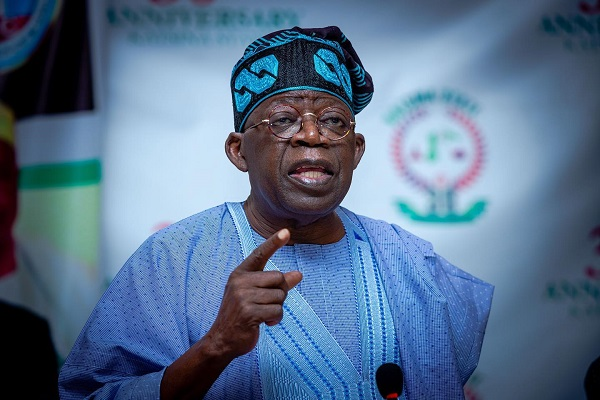 The Federal Government has quietly prosecuted and secured convictions against more than 100 individuals involved in financing terrorism over the past two years.
The Federal Government has quietly prosecuted and secured convictions against more than 100 individuals involved in financing terrorism over the past two years.
This was disclosed by President Bola Ahmed Tinubu, represented by the Secretary to the Government of the Federation (SGF), George Akume, during the opening of the 2025 National Anti-Money Laundering, Counter-Financing of Terrorism, and Proliferation (AML/CFT/CPF) Summit in Abuja on Tuesday.
President Tinubu attributed these successes to the collaborative efforts of the Office of the National Security Adviser and the Attorney-General of the Federation. He emphasized the importance of targeting the financial networks of terrorist organizations like Boko Haram and ISWAP.
“By taking away the funds and resources behind these groups, we are denying them the ability to terrorize our communities. This approach aligns with global best practices in combating serious crime,” Tinubu said.
Beyond tackling terrorism financing, the government has implemented various strategies, including the National Anti-Money Laundering and Counter-Terrorist Financing Strategy, the National Anti-Corruption Strategy, and the National Drug Control Master Plan. These initiatives aim to dismantle criminal financial networks, enhance Nigeria’s global standing, and improve business conditions for its citizens.
The Tinubu administration has also increased investments in law enforcement agencies such as the Nigeria Police, Economic and Financial Crimes Commission (EFCC), Independent Corrupt Practices Commission (ICPC), and National Drug Law Enforcement Agency (NDLEA). These measures have resulted in more convictions and a more effective clampdown on organized crime.
During the summit, President Tinubu underscored the vital role of the private sector in combating financial crimes. Financial institutions, capital market firms, and other professionals serve as a frontline defense against illicit activities.
An efficient private sector, he noted, is essential to Nigeria’s aspiration of becoming a middle-income country, while calling for regulatory predictability and efficiency from agencies like the Central Bank of Nigeria (CBN) and the Securities and Exchange Commission (SEC).
The President reaffirmed Nigeria’s commitment to completing the Financial Action Task Force (FATF) Action Plan by May 2025, aiming to exit the FATF grey list. He also outlined the government’s vision to build a robust anti-money laundering and counter-terrorism financing regime for long-term effectiveness.
Hafsat Abubakar Bakari, CEO of the Nigerian Financial Intelligence Unit (NFIU), emphasized the need for sustained reforms. “The next Mutual Evaluation by GIABA in 2027 presents an opportunity for Nigeria to lead in the global fight against financial crimes,” she said, adding that collaboration among political leaders, regulators, law enforcement, and international partners is crucial.
Philip Ikeazor, Deputy Governor of Financial System Stability at the CBN, urged all stakeholders to approach the fight against financial crimes with urgency and accountability.
“Together, we can build a resilient and transparent financial system that aligns with global standards,” he stated.

Tinubu Approves Inland Dry Ports In Ogun, Oyo To Boost Economy
Niger Tanker Explosion: Death Toll Rises As Victims Receive Medical Attention
Lagos Assembly Impeaches Speaker Mudashiru Obasa Over Alleged Fraud
Tinubu Urges China To Expand Currency Swap, Boost Africa Aid